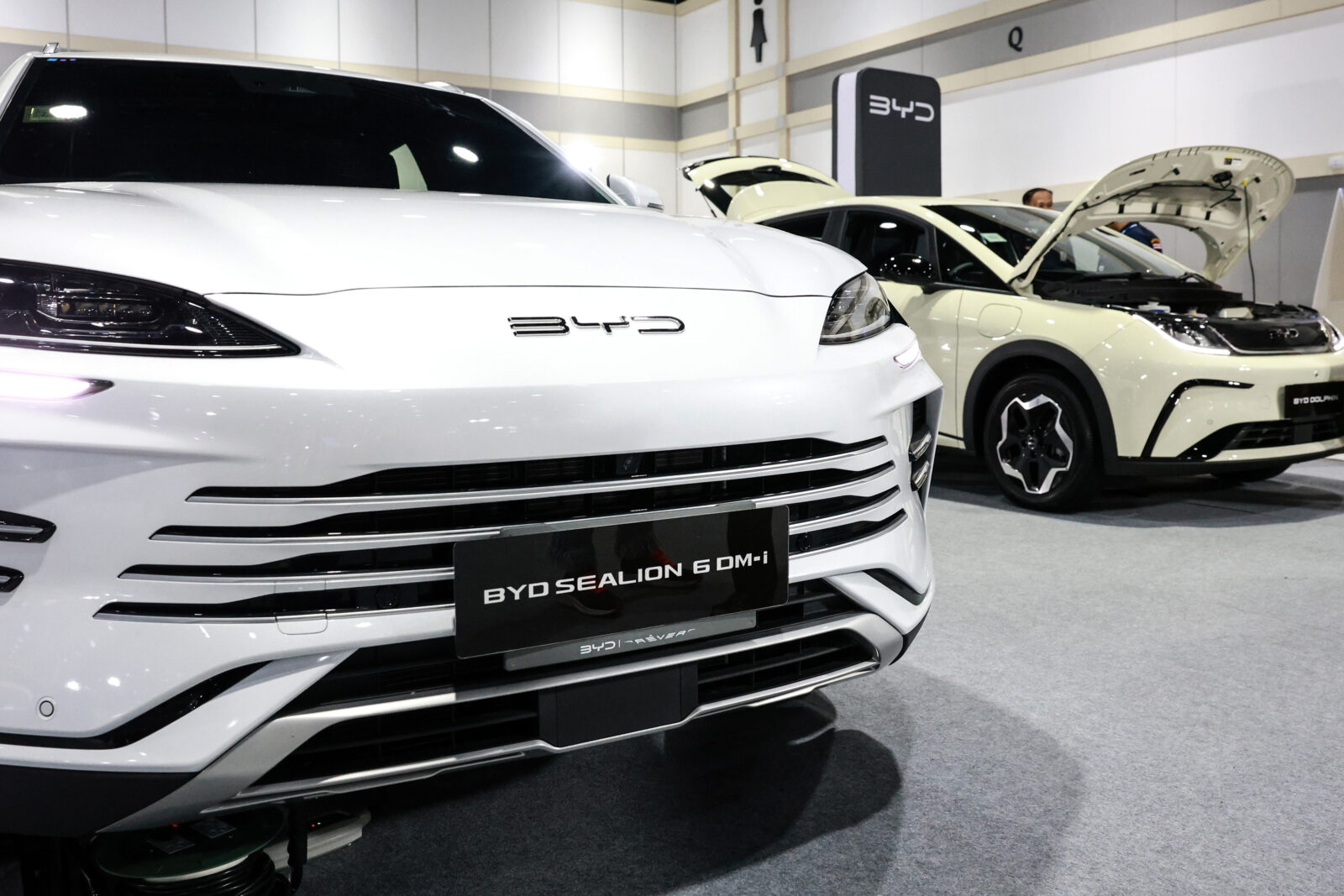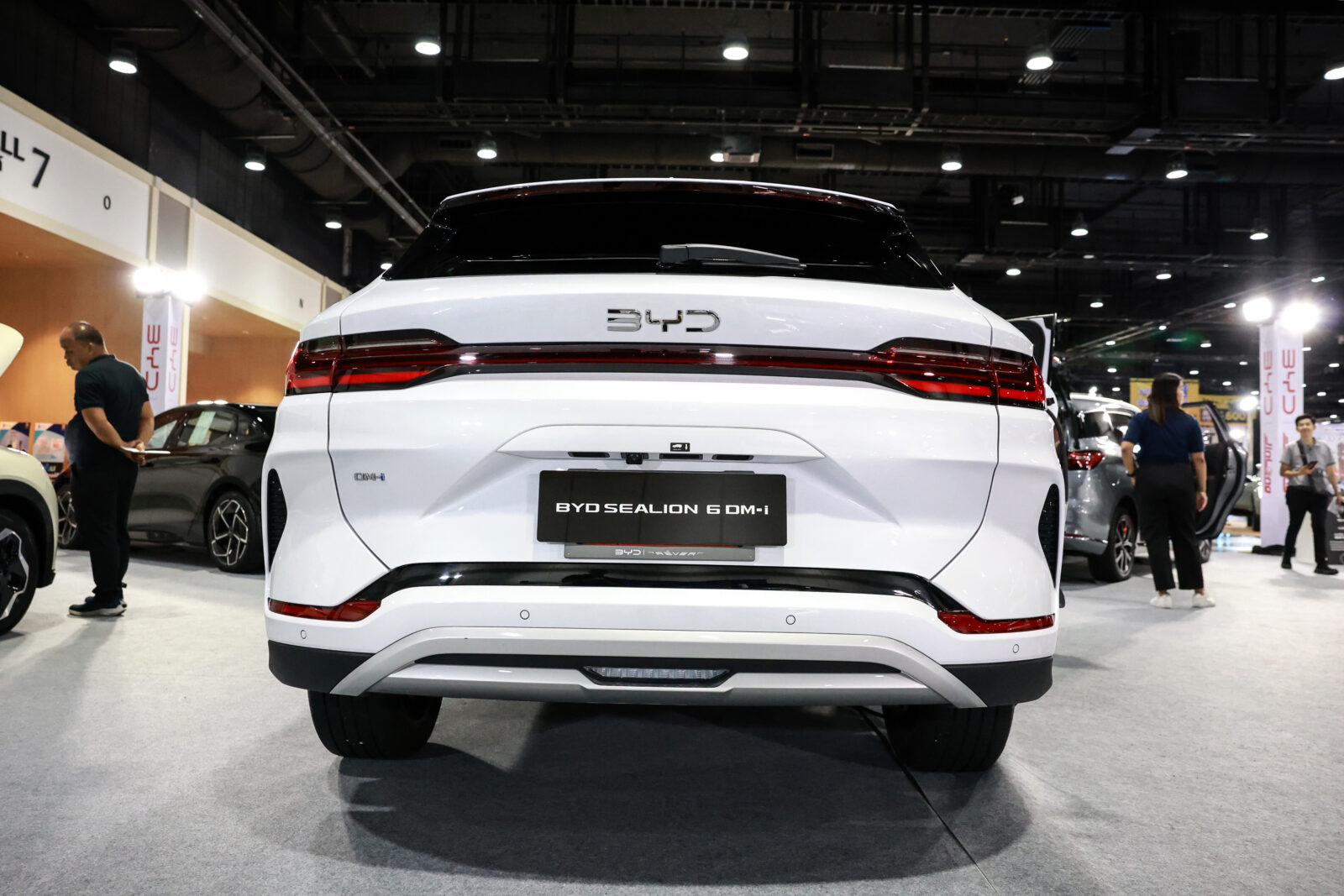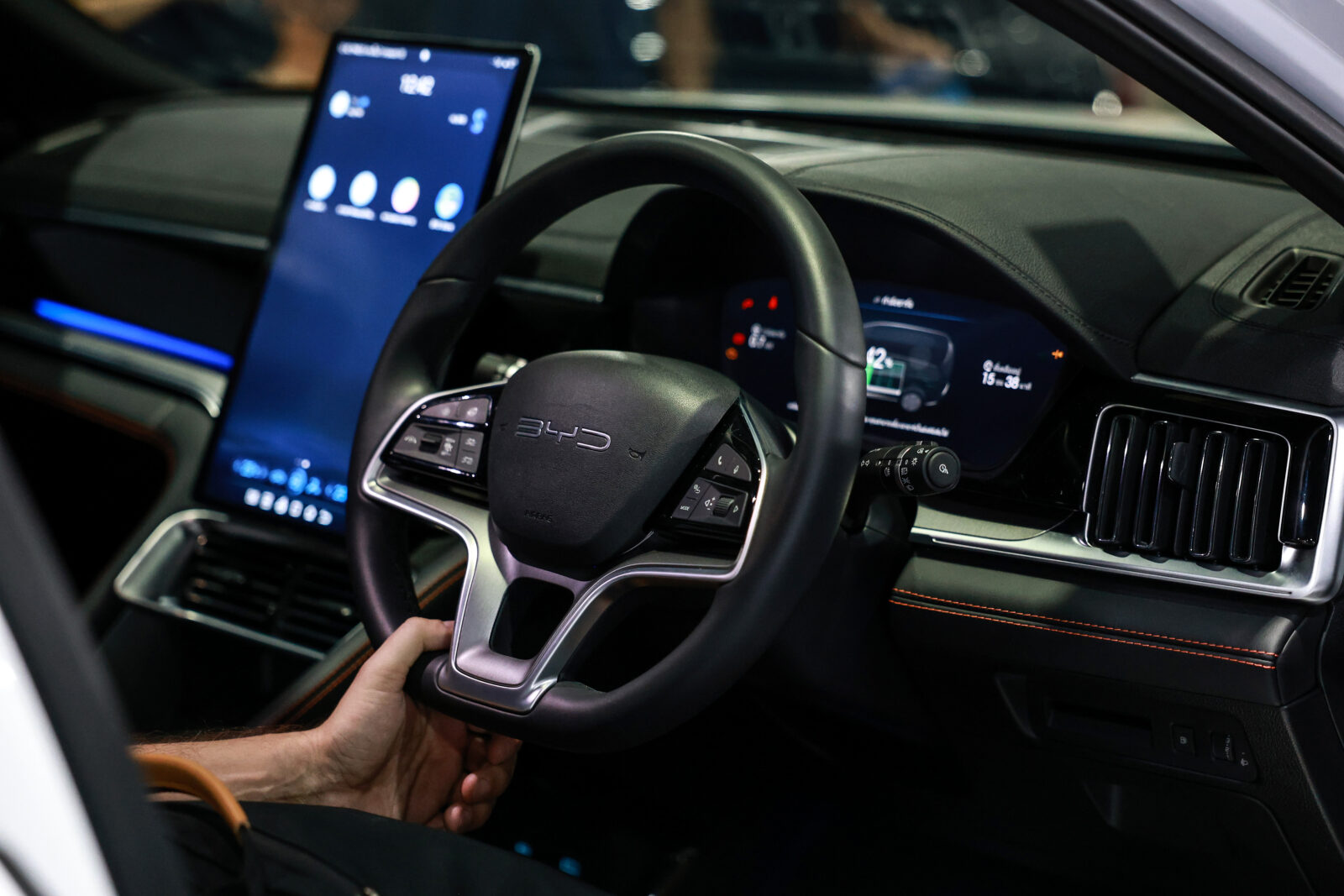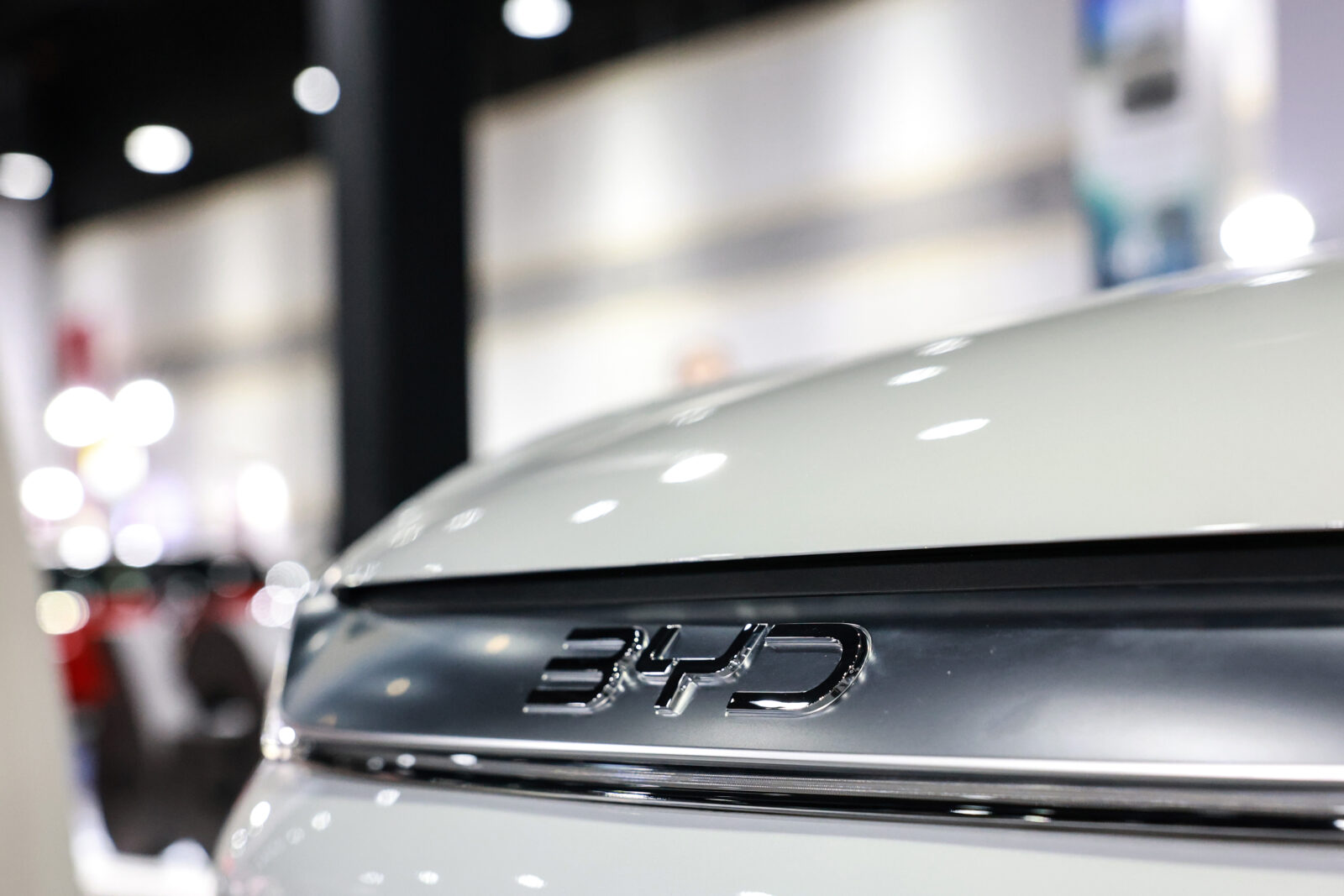China’s BYD sets aim to pass over Honda, Ford by annual sales
 A logo of Chinese car manufacturer BYD is on display at the Essen Motor Show in Essen, western Germany on Dec. 4, 2024. (AFP Photo)
A logo of Chinese car manufacturer BYD is on display at the Essen Motor Show in Essen, western Germany on Dec. 4, 2024. (AFP Photo)
China’s leading electric vehicle (EV) manufacturer, BYD, delivered 3.76 million vehicles in the first 11 months of 2024, including 506,804 units sold in November alone, to surpass its annual sales target of 4 million vehicles that would place it ahead of global competitors like Honda and Ford.
According to the China Passenger Car Association (CPCA), BYD’s market share in China’s passenger vehicle market rose to 16.2% by October, up from 12.5% in 2023. In contrast, Volkswagen’s joint ventures with SAIC and FAW Group maintained a combined market share of 12.5% during the same period.
If BYD continues this sales momentum, it is projected to deliver over 6 million vehicles in the next 12 months, potentially rivaling industry giants such as General Motors and Stellantis.
Substantial expansion, broader goals
BYD has undertaken rapid expansion efforts, adding 200,000 units of production capacity and hiring 200,000 workers between August and October.
By September, the company’s workforce neared one million, a significant increase from approximately 703,500 at the end of 2023.
The company has set a target of delivering 5 to 6 million vehicles annually by 2025, according to U.S.-based Citibank analysts.




The company has also negotiated price reductions with several suppliers, further enhancing its competitive edge, as state media reports highlight BYD’s strategic cost-cutting measures as a key factor in its success.
Foreign automakers face challenges against BYD
General Motors recently announced over $5 billion in charges related to its China operations, referring to restructuring and the declining value of its joint venture.
Falling sales and increased competition from local players like BYD reflect the mounting pressure on international manufacturers.
Globally, the EV market has seen remarkable growth, with sales exceeding 10 million vehicles in 2023, accounting for 14% of total car sales.
This expansion has been driven by leaders like Tesla and the rise of Chinese manufacturers—including BYD.
A report by Strategy& highlights BYD’s strong domestic presence and its international expansion strategies as pivotal to its success.
The competitive landscape has led to aggressive pricing strategies, particularly between Tesla and BYD.
Tesla’s discounts on its Model Y met with similar price cuts from BYD across various models.
This rivalry has intensified the price war in China’s EV market, benefiting consumers with a broader range of options and more affordable prices.



